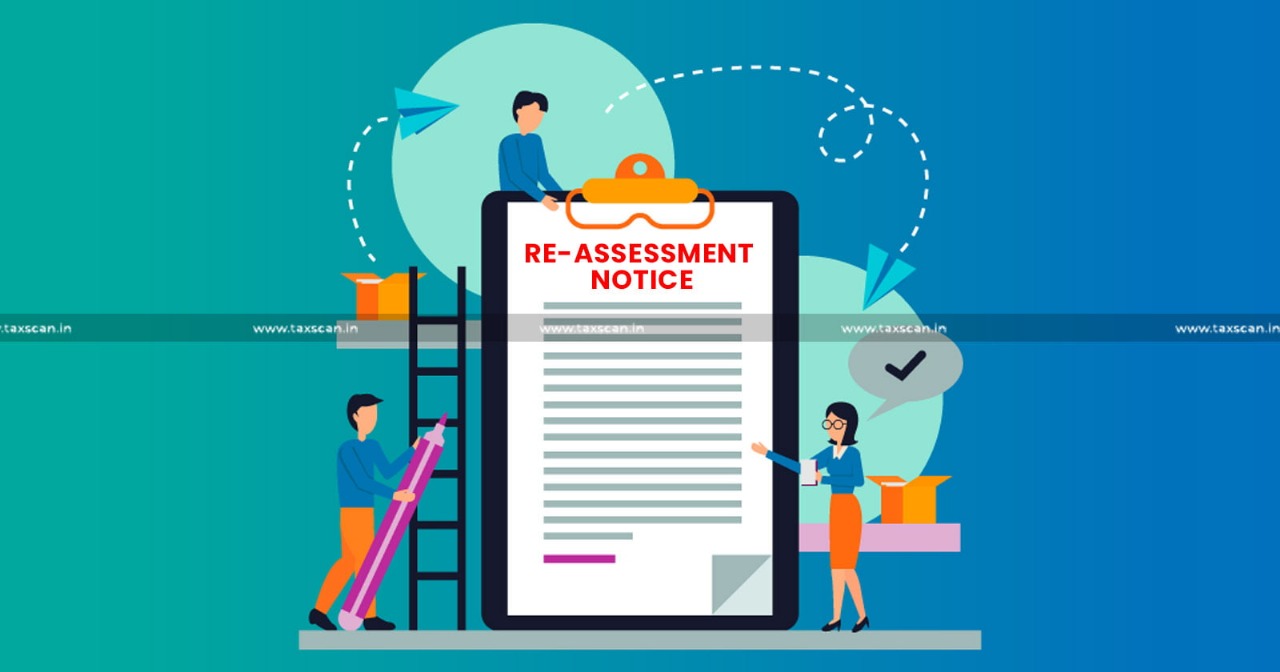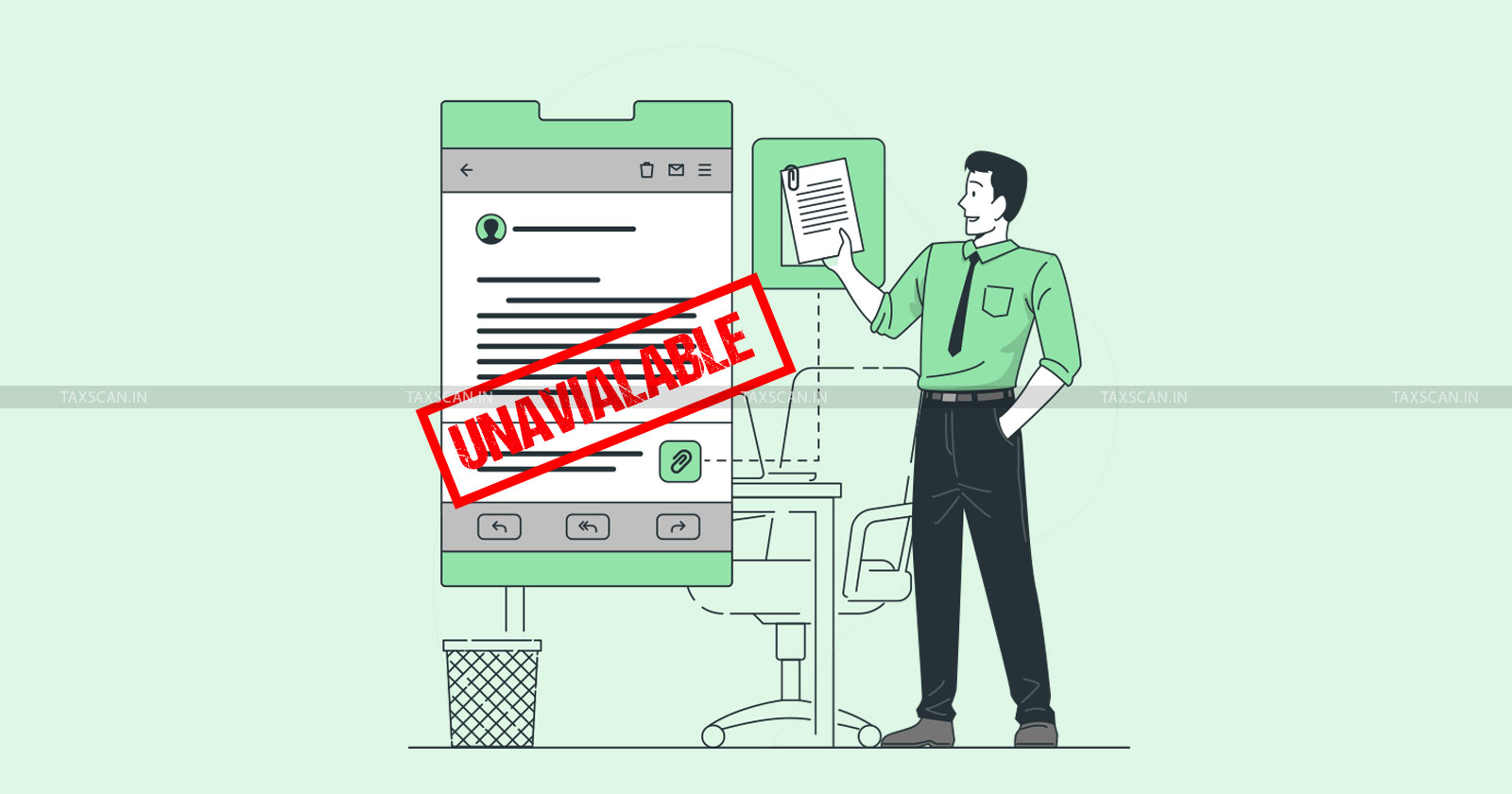Dept Fails to Issue Mandatory Fresh 148A(b) Notice Post Faceless Reassessment Transition: Gujarat HC Quashes as Time-Barred [Read Order]
The Gujarat HC held that a reassessment is invalid if the department fails to issue a fresh Section 148A(b) notice after the faceless reassessment transition, quashing it as time-barred
![Dept Fails to Issue Mandatory Fresh 148A(b) Notice Post Faceless Reassessment Transition: Gujarat HC Quashes as Time-Barred [Read Order] Dept Fails to Issue Mandatory Fresh 148A(b) Notice Post Faceless Reassessment Transition: Gujarat HC Quashes as Time-Barred [Read Order]](https://images.taxscan.in/h-upload/2025/07/11/2062616-itat-reassessment-income-tax-act-transaction-return-filed-calcutta-hc-appeal-taxscan-1.webp)
In a recent ruling, the Gujarat High Court held that a reassessment under the Income Tax Act is invalid if the department fails to issue a fresh notice under Section 148A(b) after the faceless reassessment transition, as required by the Supreme Court in Ashish Agarwal.
Saumil Avinash Baheti filed a writ petition challenging the validity of a reassessment notice issued under Section 148 of the Income Tax Act for the assessment year 2017-18. The petitioner’s counsel argued that although the notice was dated 31.03.2021, it was served on 01.04.2021 through email, making it time-barred under the limitation provisions of the Act.
 Also Read:Issuance of Reassessment Notice Under Income Tax Act Beyond Limitation Under TOLA: Gujarat HC Quashes It as Time-Barred [Read Order]
Also Read:Issuance of Reassessment Notice Under Income Tax Act Beyond Limitation Under TOLA: Gujarat HC Quashes It as Time-Barred [Read Order]
The petitioner’s counsel further argued that after the Ashish Agarwal judgment, all reassessment notices issued under the old Section 148 between 01.04.2021 and 30.06.2021 were to be treated as show-cause notices under Section 148A(b) of the Act.
How to deal with GST special audit and departmental audit? Register Now
The department was required to issue a fresh notice following the procedure laid down under the new faceless reassessment scheme. It was argued that the department did not issue such a fresh notice under Section 148A(b) but the entire reassessment proceeding was without jurisdiction.
The income tax department’s counsel argued that the notice dated 31.03.2021 should be treated as a notice under Section 148A(b) in light of the Ashish Agarwal decision and CBDT instructions, allowing the department to proceed with reassessment.
 Also Read:SCN Reply Lacks Supporting Documents Due to Non-availability: Madras HC Sets Aside Order and Remands for Fresh Consideration [Read Order]
Also Read:SCN Reply Lacks Supporting Documents Due to Non-availability: Madras HC Sets Aside Order and Remands for Fresh Consideration [Read Order]
When questioned by the court, the department’s counsel admitted that no fresh notice under Section 148A(b) was actually issued to the petitioner after the faceless reassessment transition, despite the mandate of the Supreme Court.
The division bench comprising Justice Bhargav D. Karia and Justice Pranav Trivedi observed that the notice though dated 31.03.2021, was served only on 01.04.2021, making it time-barred under the law.
The court further observed that after the Ashish Agarwal judgment, the department needed to issue a fresh notice under Section 148A(b) before proceeding with reassessment, and the failure to do so was a clear procedural lapse that affected the jurisdiction of the department to reopen the assessment.
The court found that the petitioner was denied the statutory protection of the new procedure under Section 148A, which requires the issuance of a show-cause notice, an opportunity to reply, and a reasoned order before issuing a reassessment notice. The court found that without complying with these mandatory steps, the reassessment initiated against the petitioner was invalid.
The court held that the reassessment notice was issued beyond the limitation period and that the failure of the department to issue a fresh notice under Section 148A(b) rendered the reassessment without jurisdiction. The court quashed the reassessment proceedings initiated against the petitioner and allowed the writ petition.
Support our journalism by subscribing to Taxscan premium. Follow us on Telegram for quick updates


